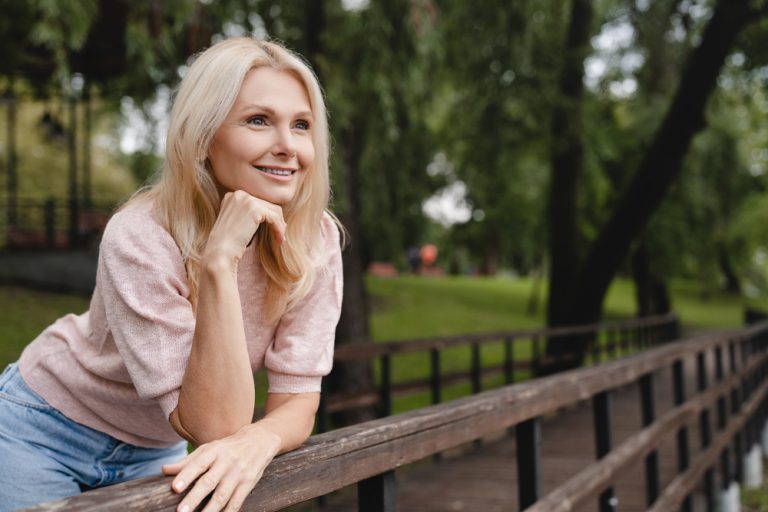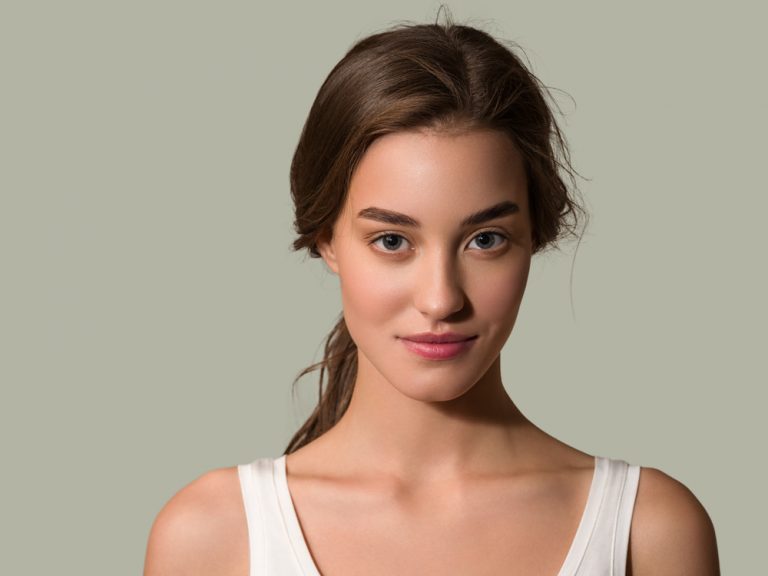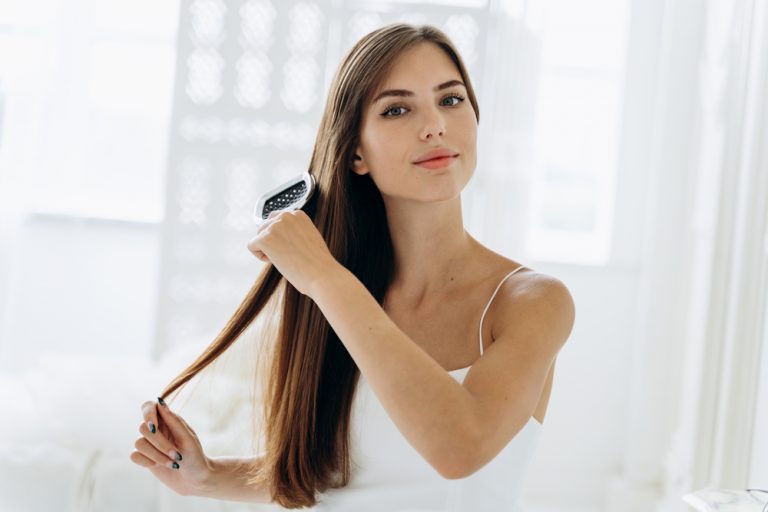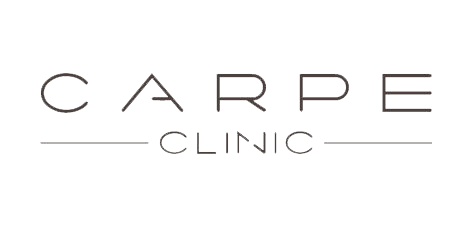Carpe in press: “From cooling spray to vaginal fillers: menopausal beauty is booming, but do we really need it?”
“I have a fan for my hot flashes and CBD oil for when my arthritic hands hurt.” They may not be immediate items you thought Pamela Anderson would dig up from her bag in her In the Bag video for British Vogue. They did earn the actress a lot of respect from viewers because, as a well-known woman of 55, she talked about menopause without flinching. The blonde is not the only celebrity to puncture the taboo that still surrounds that stage in a woman’s life. Michelle Obama recounted her experiences in her podcast, describing a hot flash as “a feeling like someone had put an oven in my core and turned it on high.” Actress Kristin Scott Thomas made a fiery menopause plea in the series Fleabag.
Naomi Watts, in turn, wants her Stripes brand to offer women products to help with the (peri)menopause, but also to inform them. At 36, the actress was already in perimenopause (the transition years to menopause, the day when a woman has not menstruated for 12 months ) and was ashamed of her symptoms for years.
“During perimenopause there comes a time when it feels like you lose yourself, I would love to see more information on how to get yourself back,” she says in American magazine Instyle. “Once you get yourself back, you are the most authentic version of yourself because you are no longer a victim of your hormones.”
Menopausal magnets
It is high time that menopause is talked about more and openly, even by lesser-known people. By 2030, more than 1.2 billion people worldwide will be in (post)menopause, which covers about a third of a woman’s life. 47 million new members join every year. More than three-quarters suffer from one or more of the 48 menopausal symptoms identified by the British movement GenM, which represents organizations and brands
wants to make menopause-friendly, list: hot flashes, mood swings, sleepless nights, changing skin and hair, decreased libido, itching … Menopause has a major physical and mental impact on many women, yet it is still often laughed at, belittled or ignored to death. Until now, that is. Women who are in their “second spring,” as traditional Chinese medicine so nicely calls the transition, are a lot more empowered and demanding than earlier generations, demanding info and products that facilitate their new phase of life.

Some then just started their own beauty or wellness brand to help with that, including through an online
provide community so that women do not feel alone.
Watts is far from being the first in that niche, which is primarily in the U.S. For example, there is Womaness which, among other things, prevents hot flashes
fights with the cooling “Gone in a Hot Flash-mist. The Honey Pot Company puts incontinence pads in
a trendy jacket. Menopausal Menopoised magnets should reduce hot flashes (although there is no prior
scientific evidence). Better Not Younger’s ‘Lift Me Up Hair Thickener’ aims to make lifeless hair
make more voluminous. Stella Via’s ‘SuperBotanical V Cream’ should help the thinning skin of the vulva
keep flexible.
There are home test kits to check your estrogen levels, apps like Midday by Lisa Health that give you
through menopause guidance and supplements to help with brain fog, mood swings, among other things
and insomnia.

More mainstream
Fresh and healthy


This is what menopause does to your skin ...
Do you want to put all that off (preemptively)? “You can excite the fibroblasts in the dermis so that they remain collagen or
going to re-create. You can do that with skin care that contains vitamin A and vitamin C. A dermaroller can
provide an extra incentive: the fine needles create mini wounds in the dermis, forcing the skin to
heal and make collagen.”
That roller is a light version of professional needling. “Lasers, skin boosters and PRP also stimulate the
collagen production and bet on skin quality.”
... and with your hair

4 treatments
Can it be a little more than cosmetics? These treatments can help with menopausal discomfort. Consultation
with your gynecologist or dermatologist to see if they are right for you.
Firmer skin: skin boosters
Injections with skin boosters like Profhilo and Sculptra boost collagen, helping to firm the skin and
hydrate. Cost? 350 euros per turn.
Vaginal dryness: vaginal fillers
Hyaluronic acid is injected into the vulva to restore its hydration and comfort. Cost: 400 euros per
turn.
For skin and hair: PRP
Platelet-rich plasma filtered from your blood is injected into the skin to firm it and reduce lines.
diminish. PRP can also be used for hair loss. Cost? 300 euros per session.
Severe hair loss: hairstetics
Synthetic hairs are anchored into the scalp for an instant fuller head of hair. Cost price? 10 euros per
synthetic hair, at carpe, carpe.be
Article written by Gazet van Antwerpen (GVA). Check out the original article here!

